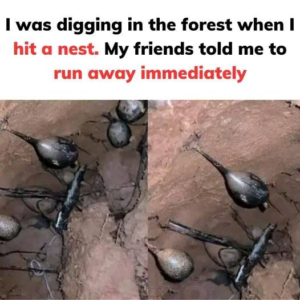
Death can be a really confusing and sometimes scary topic for a lot of people. Over the years, humans have been trying to figure out what happens at the end of life. Interestingly, some scientific studies indicate that our sense of smell might help us understand more about when death is coming. It seems that our noses can give us hints about approaching death, like being able to smell when someone else is close to dying, and also how losing our sense of smell could be a sign of our own health problems in the future.
Smelling Death: A Sixth Sense?
One interesting thing about our sense of smell is that it might help us sense when someone is close to death. There are many stories from people who say they noticed a specific smell right before a loved one passed away. These stories suggest that we might have a special sixth sense connected to how we smell.
There are a few ideas about why this happens. One idea is that when someone is close to dying, their body makes certain chemicals or smells that most people can’t notice, but some people with a strong sense of smell can. Another thought is that our sense of smell might connect to changes in how we feel, helping us sense when someone we care about is about to pass away. It’s not like we know we’re smelling death directly; instead, our noses might just be picking up on signs that it’s coming.
There isn’t a lot of scientific proof about this topic, but there have been some cool studies. One research project from the University of Chicago showed that animals like dogs and cats can smell chemical changes in people who have certain health issues, like cancer. It’s also possible that humans, with their strong sense of smell, might be able to sense when someone is close to dying. Some animals that live in hospitals and care homes seem to know when a patient is about to pass away, and they often get it right.
Loss of Smell: A Predictor of Future Health
Being able to sense when someone is close to death is one thing, but if you start losing your own sense of smell, it could mean something about your health in the future. Research has shown that if your sense of smell gets worse, it might be linked to serious health issues, like diseases that affect the brain, such as Parkinson’s and Alzheimer’s. It could also point to problems with your lungs or heart.
Studies have found that the sense of smell usually gets worse before other signs of these diseases show up. This means that if someone starts to lose their sense of smell, it could be a warning sign. This could help people and doctors notice health problems early and take action sooner.
A study in the Journal of the American Geriatrics Society showed that older people who have a weaker sense of smell are more likely to pass away within five years than those who can smell normally. This means that losing the ability to smell might be a key sign of a person’s overall health and risk of dying, which could help doctors find ways to prevent health issues.
The Future of Smell-Based Predictions
As we learn more about the human body, we’re finding new ways that different systems and senses work together. The sense of smell, which often gets less attention than sight and hearing, might actually be really important for predicting when someone is close to death and for understanding future health issues.
We need to do more research to confirm these interesting ideas. Scientists are looking into the chemical changes that happen in the body before someone dies, as well as how problems with the sense of smell can affect overall health and the risk of dying. By understanding this better, we could create tools that use our sense of smell to help people get important medical help in time.
The Nose Knows?
The idea that “the body senses when death is close, starting with your nose” is really interesting to look into. The fact that some people can smell death in others and that losing the ability to smell might hint at future health problems gives researchers new paths to explore in medicine and biology. By studying how our sense of smell works, we could discover important information about life and death, which might help us live healthier lives.
Sources
- “The smell of death: evidence that putrescine elicits threat management mechanisms.” Frontiers. Arnaud Wisman and Ilan Shrira. August 28, 2015.
- “Dogs And Cats Can Detect Illness.” CBS News. Nan Talleno. November 19, 2013.
- “Animals learn to fine-tune their sniffs.” U Chicago. William Harms. October 30, 2012.
- “Olfactory Dysfunction Predicts 5-Year Mortality in Older Adults.” PLOS One. Jayant M. Pinto, Kristen E. Wroblewski, David W. Kern, L. Philip Schumm and Martha K. McClintock. October 1, 2014.





